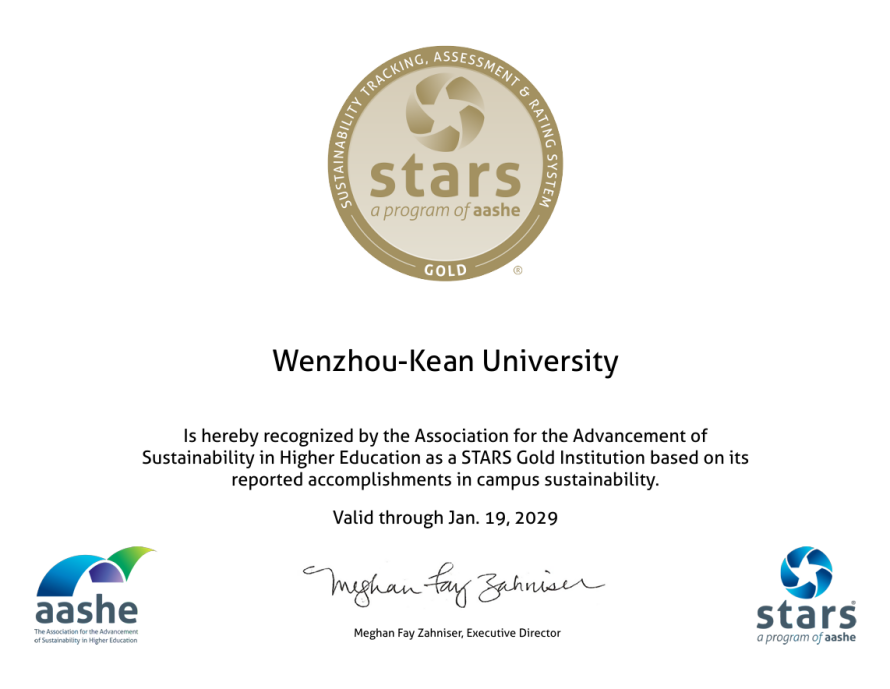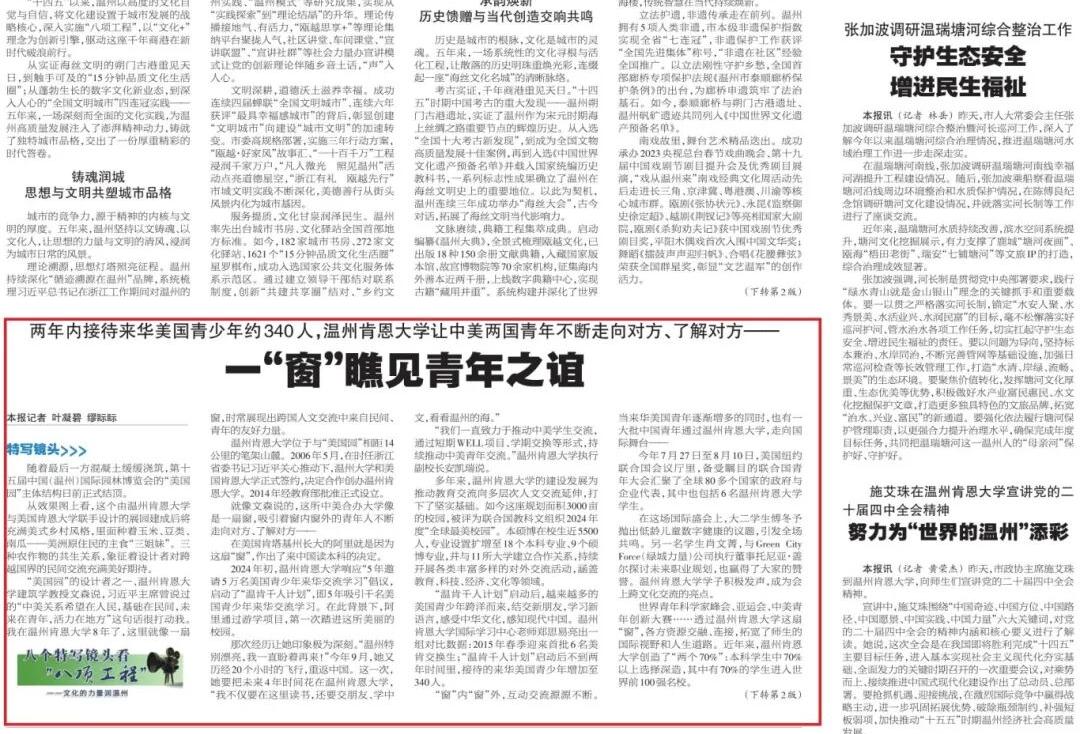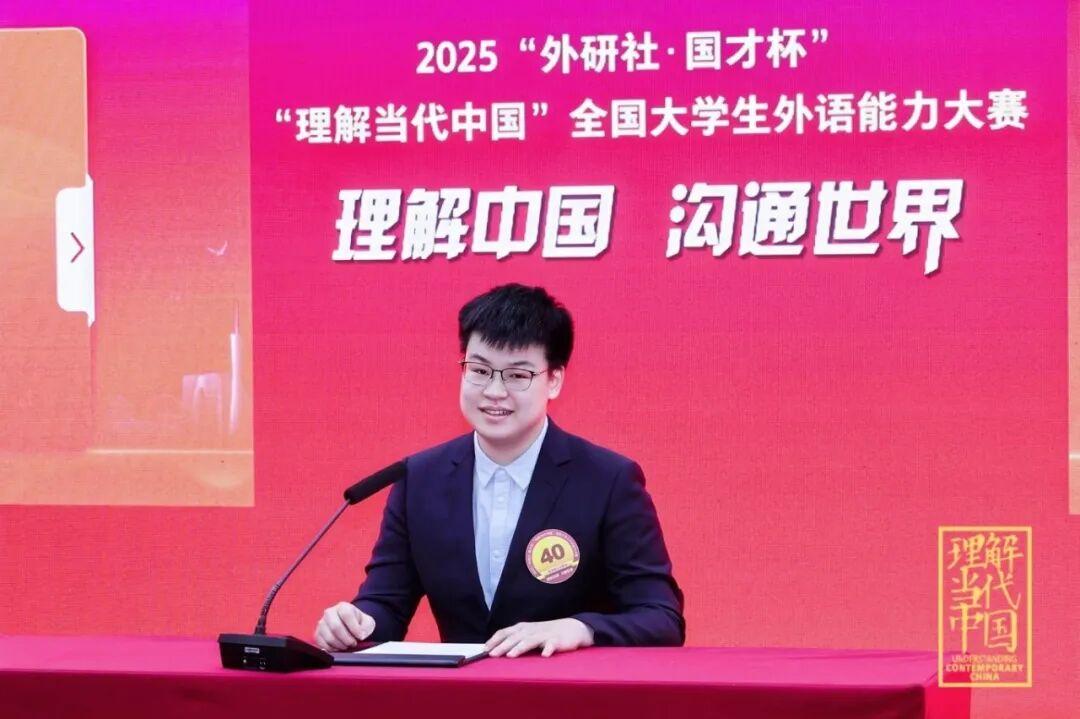Jennifer Marquardt: literature is about interiority.
Prof. Jennifer Marquardt joined the WKU family at the beginning of its establishment. She is the Assistant Professor of English in the College of Liberal Arts. Beautiful, kind, talented are the students’ impression of her.
Prof. Marquardt earned her Ph.D. in Literature from the Center for Writers at the University of Southern Mississippi. Originally determined to become an architect, she finally chose literature and becomes a fiction writer. Her work has been anthologized in Modern Shorts and has been published in New World Writers. Among them, her magic realism novel Hard surfaces are good for the body considers human relationships at their frailest moments, halfway between just barely hanging on and letting go. Her stories are searching, sensitive, inquisitive, and compelling.
Prof. Marquardt firmly believes that studying literature is essentially the study of interiority. Literature can help cultivate people’s analytical ability and explore their inner world. Her academic research mainly includes narrative theory, feminist theory, utopian research and media research.
Growing up in Ludington, Michigan, who enjoys hiking, cycling and kayaking, she says interactions with others during outdoor activities give her inspirations.
We interviewed Prof. Marquardt online to talk about her experience and her views on literature.
Q
You were an English major, and you write fiction, what led you to literature? Or was there an important moment that prompted you to decide to be a writer?
A
I initially wanted to be an architect because it is this blend of practical physics with aesthetics. But interning at a small architectural firm, I realized it was extremely unlikely I would be able to practice this kind of small-scale design–residential houses, etc.–in a professional capacity.
So I bounced around a lot in undergraduate. I took all sorts of courses in physics and calculus and biology. I liked them and was good at them. My family approved because pursuing a degree in STEM seemed very practical. So when I got drawn into the literature crowd, it seemed very subversive. And that was part of the fun.
Mostly, I really liked the people. My mentor, Dr. Brent Chesley, showed me how literature could incorporate the design and problem-solving elements I liked in architecture. In addition to literature courses, he encouraged me to take creative writing courses and led me into participating in that community in terms of conferences and publications. I think it’s mostly the literature people, how engaged they are, that persuaded me to weight that field more heavily than the others.
Q
Nowadays, science and engineering are more popular than liberal arts because of their practicability. Would you please share your opinion about the significance of literature for the development of society and individuals?
A
My favorite study regarding literature is Lisa Zunshine’s concept, Theory of Mind. It holds that people who read a lot of fiction have an increased ability to predict another person’s thought process. This is because studying literature is essentially the study of interiority. So exposing oneself to many different types of interiority is akin to a database of interiority that we can then apply to real life and real people to know what they are thinking. It’s like a super power.
I also think that Literature is the best tool for developing analytical thought. It teaches us to parse subjects in a logical way and make meaning of them. That’s why courses like World Literature are required in almost every university. It isn’t so that you can quote Shakespeare at cocktail parties. It is there to build these important skills.
On the larger scale, the Liberal Arts and STEM are complements to one another. STEM has a lot of literal applications. And this makes it really attractive in terms of job security.
The humanities, I think, teaches us different skill sets that produce students who are equipped for any number of positions. If there is a drawback, it is figuring out how these many skills can translate into just one, specific job. The humanities also provides a context for those STEM situations. So an engineer could be doing some really important and interesting work in her field, but it’s important that she has a sense of where her work fits into humanity–our history, psychology, etc. that context makes her work even more meaningful.
Q
According to courses you are teaching (WORLD LITERATURE, WRITING FOR DIGITAL SPACES, INTRO TO ELECTRONIC LIT), what do you hope students will learn from your classes?
A
I want students to develop their expression by giving them a framework of representation of interiority. I want them to develop the confidence to have discussions about meaningful issues, and I want them to build these skills through sophisticated play. Some of the best ideas are built through play and experimentation.
Q
You are one of the two remaining founding faculty of WKU. What coincidence made you come to WKU and stay here?
A
When I graduated with my doctorate, I applied for a lot of jobs and was eventually offered this one as well as a position at a university in Wisconsin–a state in the US, close to where I grew up. I knew what Wisconsin was like. I had no idea what China was like. So it was a sense of curiosity that brought me here. And it’s that sense of curiosity that has kept me here. China–and Wenzhou in particular–is a place that rewards exploration. I love hiking, cycling, or sometimes kayaking the naturescapes of the city. I love the interactions I have with people while I’m doing these.
In terms of staying at WKU, it has always been the students. Every WKU professor loves the kindness and dedication and intelligence that students demonstrate consistently. Students are our absolute favorite thing about this place. Because I have been here since the beginning, I get to see the end result: the talented, successful people that our seniors are. It’s really rewarding to have contributed in some small way to those impressive people.
Q
Are there any upcoming writing plans?
A
Yes! I’m writing a novel. And I’m drawing heavily on the work that I’ve done with Students Partnering with Faculty about Narrative Engagement as well as my current Independent Study, who is providing a lot of historical and cultural information and perspective. I’m really lucky to get to work with these students. More than just providing information, they inspire me.
Writer: CHEN Yue(Yoki)
- Wenzhou-Kean University Spearheading Sustainability in Higher Education in Asia and in China, Awarded the AASHE STARS Gold-Certified in Sustainability

- Media Report | Wenzhou Daily: A Window into Friendship Between Chinese and U.S. Youths Wenzhou-Kean University Welcomes 340 Young Americans in Two Years

- WKU Student wins first prize in a national English speech contest: What is his answer to the value of boredom?


